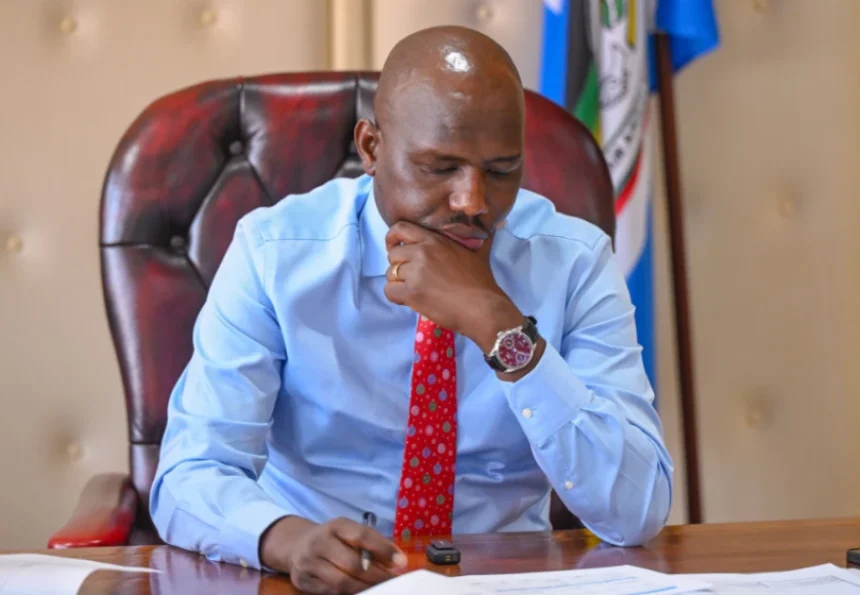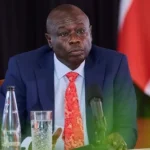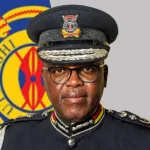Interior Cabinet Secretary (CS) Kipchumba Murkomen has announced a new raft of policy reform frameworks in the National Police Service (NPS) to streamline efficiency in police stations across the nation.
Addressing the press on Monday, CS Murkomen noted that the reforms were created to make Kenyan police stations “centres of excellence”.
The reforms include the mandatory installation of CCTV surveillance in all 1209 stations for the next two years, which Murkomen said shall be manned by the Officer Commanding Station (OCS).
He added that he will be making proposals to parliament to enact laws that criminalise tampering with CCTV cameras and that the OCS should report CCTV failure within an hour after the occurrence.
CS Murkomen also directed all police stations to digitize their occurrence books in the next year, to make the incident reporting system tamper-proof.
The NPS will also take part in community policing initiatives to enhance community integration and improve the relationship between police officers and the communities.
All police stations will also have regular audits and performance reviews to independently examine police conduct.
CS Murkomen added that the installation of the structures will be made in conjunction with the law society and religious leaders to enhance seamless realization.
All police officers will also undergo fresh training and education programmes as the NPS has established continuous professional development training.
Murkomen noted that all officers shall undergo minimum annual training as shall be directed in the curriculum to restore professionalism and discipline across all ranks.
He ordered that these reforms shall be centralized at every police station under the command of the OCS.
This comes amid the existence of disturbing discrepancies in police testimonies over the murder case of Albert Ojwang’ in police custody.
The Independent Policing Oversight Authority (IPOA) has revealed that critical CCTV footage is missing at the Central Police Station where Ojwang’ was booked and reportedly died.
Police accounts of the events leading to his death have also been mismatched as testimonies from the Directorate of Criminal Investigations (DCI) director Amin Mohamed do not match those of CCTV footage obtained from Mbahathi Hospital, where Ojwang’ was announced dead.
The hospital’s report on Ojwang’s body show that he arrived dead, his body was cold and he had bruises at the back of his head.
Police accounts however claimed that Ojwang’ hit his head in his cell and was pronounced dead after being received by medical personnel at the hospital.



